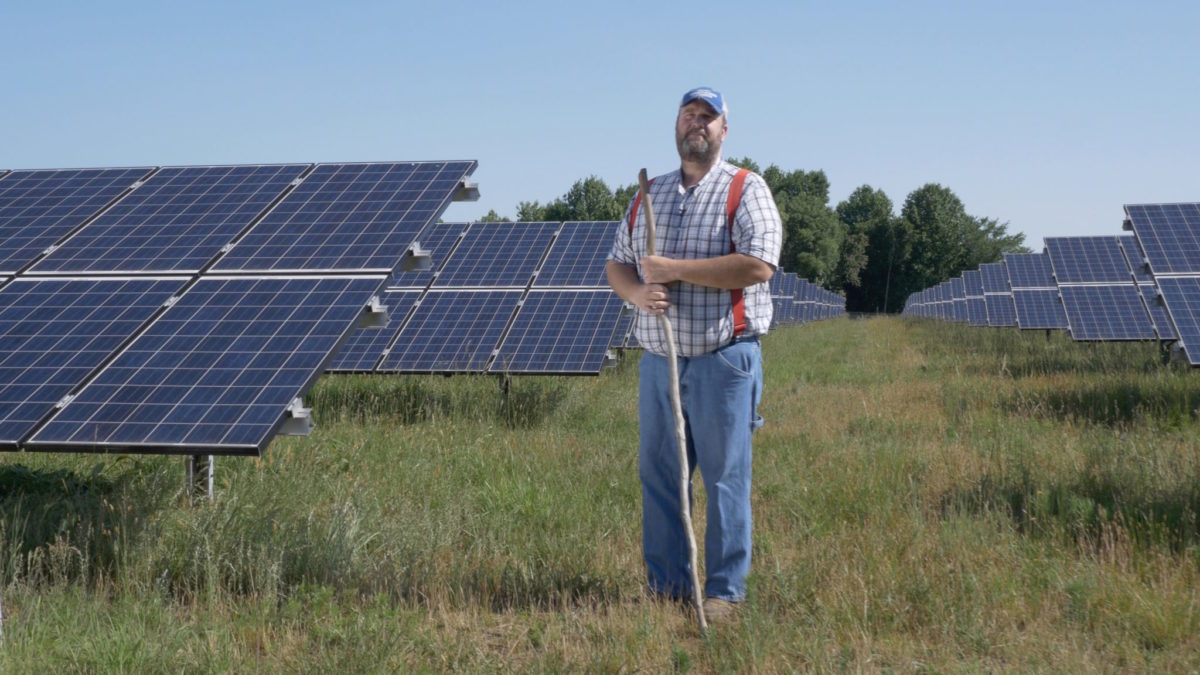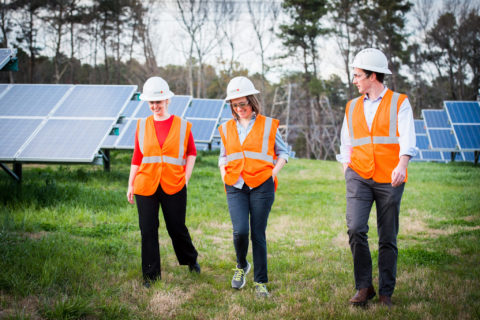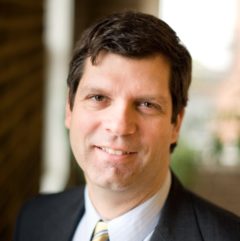Energy Foundation made its first grant to Southern Environmental Law Center in 1997.

With a team of 80 lawyers working out of offices in Virginia, Alabama, Georgia, North Carolina, South Carolina, and Tennessee, the Southern Environmental Law Center (SELC) is one of the nation’s largest environmental law nonprofits—and the only one dedicated to environmental advocacy in the Southeast. The organization’s structure positions the staff to combine region-wide perspective and strategy with local presence and place-based action.
Frank Rambo, Senior Attorney in the Virginia office and leader of SELC’s Clean Energy and Air Program, and his team successfully push regulatory commissions to scrutinize utilities’ operations and long-term planning, and to promote alternatives to proposals for more coal, gas, or costly nuclear plants.
In most states in the Southeast, utilities operate as monopolies and submit Integrated Resource Plans (IRP) on a regular schedule for approval by state regulatory commissions. Rambo says in their IRPs, utilities tend to project a capacity gap at the end of the planning horizon, and—because they make money when they build things—have incentives to propose filling that gap with a new fossil-fuel or nuclear facility.
That’s when SELC digs in. “We look at a whole host of issues,” says Rambo. “They may exaggerate the integration costs of putting a lot of solar on the grid, or minimize the role energy efficiency can play. It’s in the utilities’ financial self-interest to inflate their forecast of electricity demand. We make sure that they don’t have their thumb on the scale. When a big, traditional power plant is proposed, we make the case for scalable, cheaper alternatives. At the very least, we tell the commission that if they approve it, they should also make the utility deploy more efficiency and solar—resources our utilities have historically underinvested in.”
In December 2018, for the first time in history, the Virginia State Corporation Commission (SCC) rejected an IRP submitted by Dominion Energy—the largest utility in the Commonwealth—saying long-term forecasts for energy demand were unrealistically high, and that the utility didn’t model clean energy resources and efficiency measures that could contribute to lower costs for customers or are mandated by law. The utility must return to the commission with a revised plan. SELC played a key role in that precedent-setting decision.
Another case involved a Virginia law that allows customers to purchase renewable energy from independent providers when their utility does not offer an option to buy 100 percent renewable energy. Dominion offered no such choice and claimed that the law limited the freedom of its large customers who wanted to go the renewable, third-party provider route, effectively stifling competition. One solar company wanted to break that logjam and they asked SELC to challenge it alongside the company. They won, and when Dominion appealed and the case went to the state Supreme Court, SELC won again. “It was important because it maintains customer choice, and independent solar contractors are big job providers in our state,” said Rambo.

SELC is also eager to support Dominion when its programs are sound. When the utility was required to develop a pilot program to promote community solar in its territory, Dominion officials asked for SELC’s feedback before submitting the plan to the SCC. Rambo’s team found some administrative costs that made the program more expensive than necessary and suggested changes, but otherwise defended the plan at the SCC—and it was approved.
In addition to this work, the SELC energy program focuses on coal ash, the Atlantic Coast Pipeline, and other issues. They also maintain the website RatesOfSolar.com, where residents can learn about solar policies in their state or utility area, and another website, Stories of Solar, highlighting how different constituents in the South are embracing and promoting solar.
“SELC is a long-standing policy powerhouse in the Southeast,” says Ryan Hodum, Energy Foundation’s Program Director, Southeast Policy. “The team has a deep understanding of what it takes to make progress in the region.”

